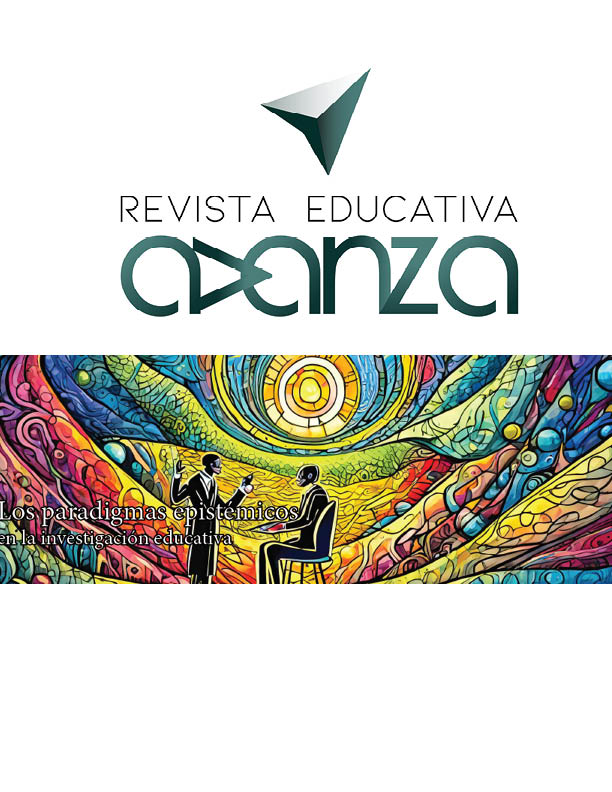Epistemic paradigms in educational research
Keywords:
Paradigm, Educational research, Research approachesAbstract
To know and interpret reality, over time there have been different paradigms to respond to the demands and problems of the different fields of science. Currently, three are understood: postpositivist (with a quantitative approach), constructivist (with a qualitative approach) and sociocritical.
Usually in the sciences (including the pedagogical one), positivism had predominated, but as new needs were manifested, they began to be modified and new paradigms emerged to seek interpretations that took into account the historical and sociocultural context and that had a social impact. These paradigms also influenced the way in which problems are approached and knowledge is generated in educational research.
Currently, in the pedagogical field it is necessary to encourage scientific research to promote aspects such as: higher educational quality, development of education and comprehensive evaluation, best practices and educational policies, among others.
References
Almaraz Rodríguez, O. D. (2014). Los paradigmas y su legitimación. En Barraza, A. (Coordinador). Posicionamientos epistemológicos desde una perspectiva doctoral. Durango, México: Universidad Pedagógica de Durango. pp.126-140. Recuperado de: http://upd.edu.mx/PDF/Libros/Epistemologia.pdf
Aravena, M., Kimelman, E., Micheli, B., Torrealba, R., y Zúñiga, J. (2006). Investigación educativa I. Universidad Arcis: Chile. https://hdl.handle.net/20.500.12799/4687
Contreras, I. (1996). La investigación en el aula en el marco de la investigación cualitativa en educación: una reflexión acerca de sus retos y posibilidades. Revista Educación, 20(1), 109- 125. https://doi.org/10.15517/revedu.v20i1.24571
Gil, J., León, J., y Morales, M. (2017). Los paradigmas de investigación educativa, desde una perspectiva crítica. Revista Conrado, 13(58), 72-74. https://conrado.ucf.edu.cu/index.php/conrado/article/view/476/510
González, F. (2005). ¿Qué es un paradigma? Análisis teórico, conceptual y psicolingüístico del término. Investigación y postgrado, 20(1), 13-54.
Hernández, R., Fernández, C., y Baptista, P. (2010). Metodología de la Investigación. Mc Grill Education.
Kuhn, T. (1971). La estructura de las revoluciones científicas. México: Fondo de Cultura Económica.
Machado, E., y Montes, N. (2008). Acerca de los llamados paradigmas de la investigación educativa: la posición teórico-metodológica positivista. Revista Pedagogía Universitaria 8(1), 1-19.
OECD. (2004). Revisión Nacional de Investigación y Desarrollo Educativo. Reporte de los examinadores sobre México. https://www.oecd.org/mexico/32496490.pdf
Ramos, C. A. (2015). Los paradigmas de la investigación científica. Avances en psicología, 23(1), 9-17. https://doi.org/10.33539/avpsicol.2015.v23n1.167
Real Academia de la Lengua Española. (2022). Paradigma. https://dle.rae.es/paradigma
Ricoy, C. (2006). Contribución sobre los paradigmas de investigación. Educação, 31(1), 11-22.
Tejedor, F. J. (1986). La estadística y los diferentes paradigmas de investigación educativa. Educar, 79-101. https://www.redalyc.org/articulo.oa?id=117117257002
Toro-Huamanchumo, C., Failoc-Rojas, V., y Díaz-Vélez, C. (2015). Participación en sociedades científicas estudiantiles y en cursos extracurriculares de investigación, asociados a la producción científica de estudiantes de medicina humana: estudio preliminar. FEM: Revista de la Fundación Educación Médica, 18(4), 293-298. https://dx.doi.org/10.4321/S2014-98322015000500011

Published
How to Cite
Issue
Section
License
Copyright (c) 2024 Flor Judith Rodríguez Ortíz

This work is licensed under a Creative Commons Attribution-NonCommercial 4.0 International License.




